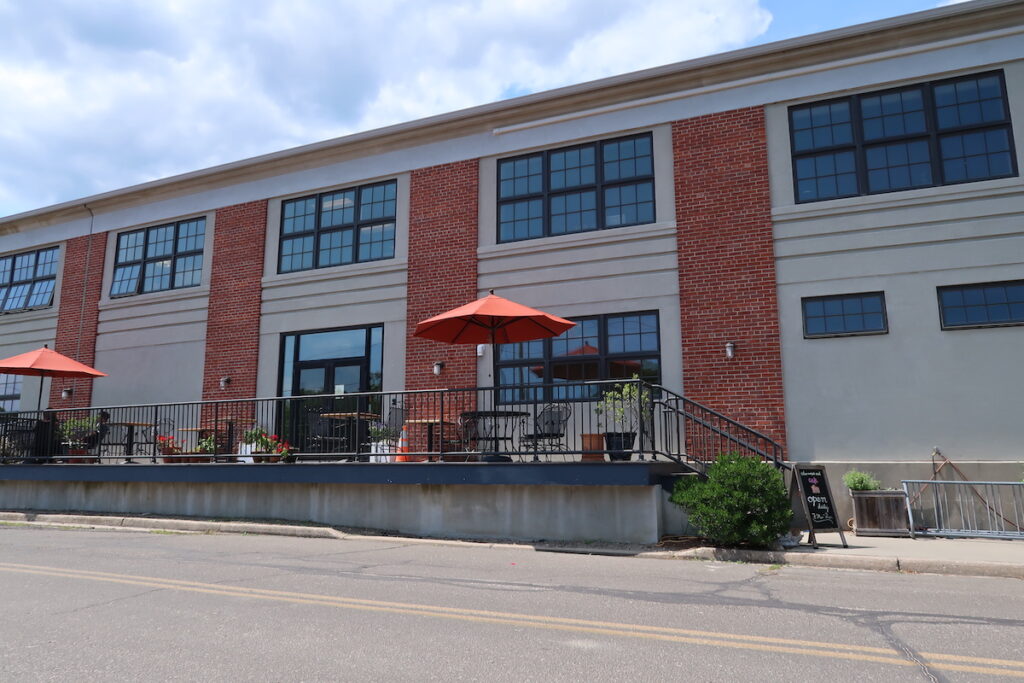Town Hall Notes: Garbage permit hearing set
Southold’s much-discussed new permit for garbage carters will be up for public hearing on April 26 at 4:30 p.m. in the Town Hall meeting room.
The proposed law was drafted after the town learned that a new carter, Go-Green Sanitation, was not requiring residents to separate recyclables from the garbage they leave at the curb. Though Go-Green’s owner maintains that he brings the unseparated garbage to a licensed sorting facility in Yaphank, town law requires all garbage left out for pickup must be separated, with recyclable materials placed in a separate container.
The proposed law reinforces that requirement and further creates a new local carter permit process. Permit applications would be inspected by officials of the town’s Solid Waste District and the zoning inspector to ensure that carters are adhering to the law. A permit would cost just $5.
Carters would also be required to provide lists of the number and types of clients they have and update those lists every three months. Violations would bring either a civil penalty or the permit’s revocation.
More Building Inspections?
During Tuesday’s Town Board work session, town building inspectors met with the board members to discuss the request that they embark on an informational campaign to visit code violators.
Supervisor Scott Russell said he recently attended a public forum at which many Mattituck residents complained about the proliferation of sandwich boards, neon signs and large flags in front of businesses. He added that there’s a perception that the town targets certain people for code violations while ignoring others.
Building inspector Gary Fish told board members that while he does talk to property owners every day about code violations, many of the most flagrant violators have already been informed but have refused to cooperate.
“The outstanding issues are in the process of being prosecuted,” he said. “Once someone goes to court, it has a life of its own. A person’s either going to comply or dig in and fight. Most people comply.”
Mr. Fish added that Southold Town has never dedicated an employee for ordinance inspections and may need to consider doing that.
Mr. Russell also said the town code limits the number of neon signs in store windows but makes no mention of LED lights. That needs to be addressed when the code is updated, he said.
Another common problem the inspectors identified is large flags that look like windsurfer sails at the entrances to wineries throughout town.
“Nobody’s making money now, so they’re putting out more signs,” said chief building inspector Mike Verity. “If you tell them they can’t, they’re going to say it’s the price of doing business.”
Cutting Extension Fees
The Town Board is also planning to change its renewal fee structure for building permits. At present, the cost of renewing a building permit is the same getting the original. If the changes are adopted, the town will charge 50 percent of the original fee for the extension. That’s if the applicant started but didn’t finish construction or didn’t obtain a certificate of occupancy before the original permit expired.
No Rest for Playing Fields
Southold Town’s athletic fields see nonstop use from early spring until the first snowflakes fly, and it’s taking a toll on the grass there. Town public works director Jim McMahon and deputy directory Jeff Standish told the board Tuesday that they need to give the grass a chance to grow.
“This time of year, you’re indirectly roto-tilling these fields” by playing on them, said Mr. Standish, who added that he spent $400 on grass seed last fall that may have been wasted because the grass didn’t have time to grow.
Town Board members plan to look into purchasing a farm field through the Community Preservation Fund to use for sports, and to work with local schools to determine whether their fields are being used to full capacity.
noise plan coming
With the summer season soon to be upon us, Southold Town has still not established the noise ordinance that was promised at the end of last summer.
The Town Board will likely meet with a vendor to discuss how to use the noise meters it will purchase in two weeks, according to Mr. Russell.
When a draft of the proposed noise ordinance was first presented to the public last fall, many were concerned that the decibel levels it allowed were too restrictive.
The law would have permitted town code enforcement officers to cite violators if noise at their property lines exceeded 65 decibels during the day and 50 decibels at night. After a public hearing in October, Town Board members agreed to buy noise meters and measure the levels for themselves.
Town Attorney Martin Finnegan said he believes the noise meter demonstration will likely take place within the next 30 days, after which the proposed law will be revised, sent to the town’s code committee for final review, and then be put up for another public hearing.








